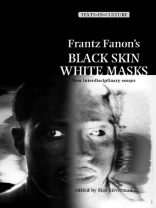First published in 1952, Frantz Fanon’s ‘Black Skin, White Masks’ is one of the most important anti-colonial works of the post-war period. It is both a profound critique of the conscious and unconcious ways in which colonialism brutalises the colonised and a passionate cry from deep within a black body alienated by the colonial system and in search of liberation from it.
This volume is the first collection of essays specifically devoted to Fanon’s text. It offers a wide range of interpretations of the text by leading scholars in a number of disciplines. Chapters deal with Fanon’s Martinican heritage, Fanon and Creolism, ideas of race and racism and new humanism, Fanon and Sartre, representations of Blacks and Jews, and the psychoanalysis of race, gender and violence. Contributors offer new ways of reading the text and the volume as a whole constitutes an important contribution to the growing field of Fanon studies.
Tabella dei contenuti
Preface
Chronology
Introduction – Max Silverman
1 Adieu foulard. Adieu madras – David Macey
2 Where to begin? The commencement in ‘Peau noire, masques blancs’ and in creolisation – Françoise Vergès
3 Colonial racisms in the ‘métropole’: reading ‘Peau noire, masques blancs’ in context – Jim House
4 Frantz Fanon and the Black-Jewish imaginary – Bryan Cheyette
5 The European knows and does not know: Fanon’s response to Sartre – Robert Bernasconi
6 Reflections on the human question – Max Silverman
7 Children of violence – Vicky Lebeau
8 En moi: Frantz Fanon and René Maran – David Marriott
Notes on contributors
Circa l’autore
Max Silverman is Professor of Modern French Studies at the University of Leeds












